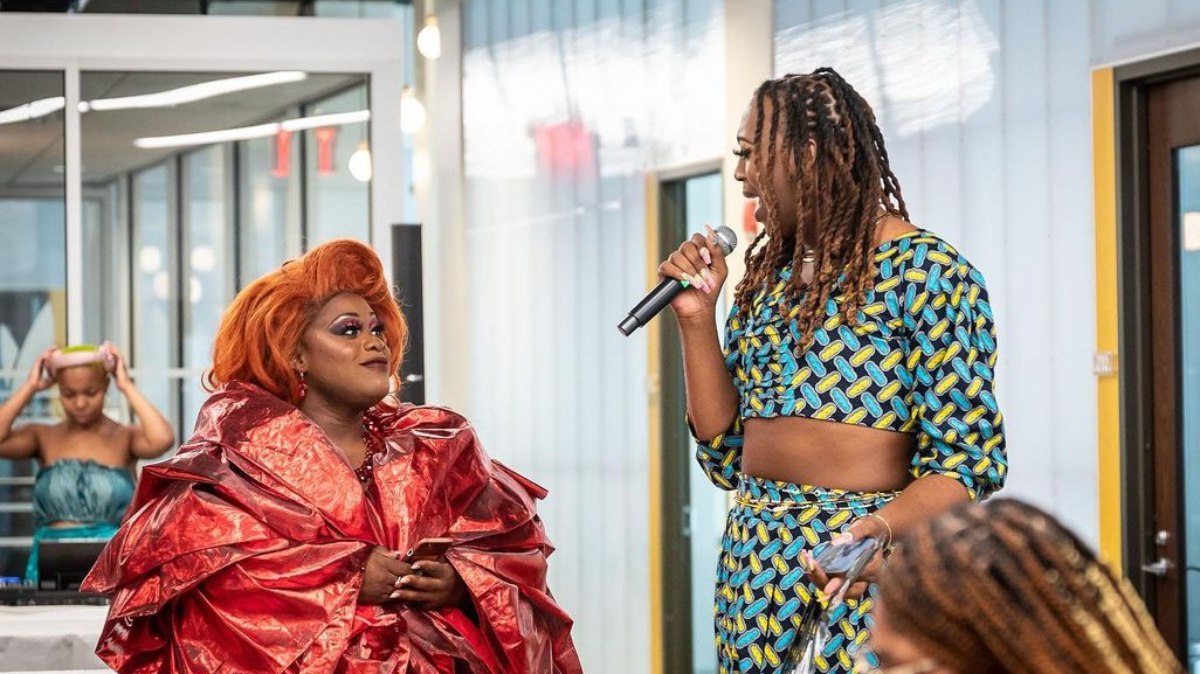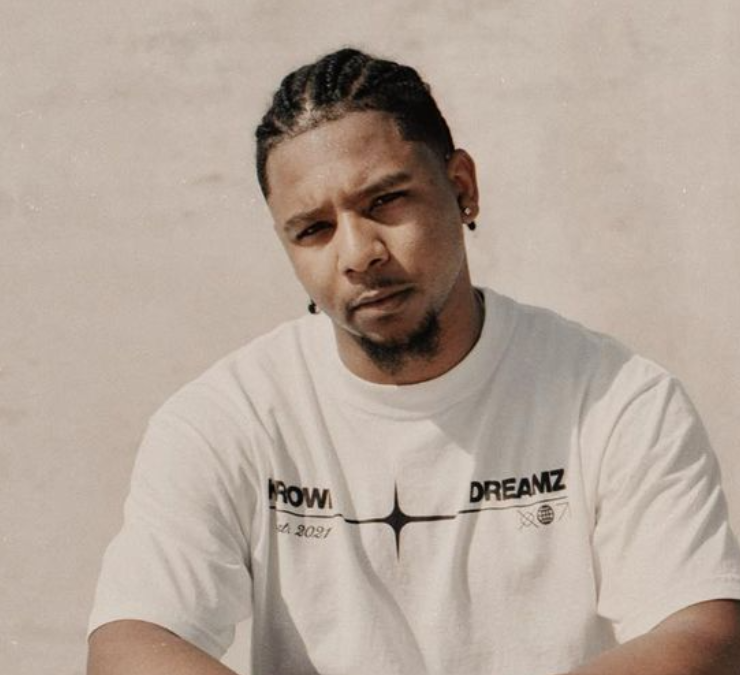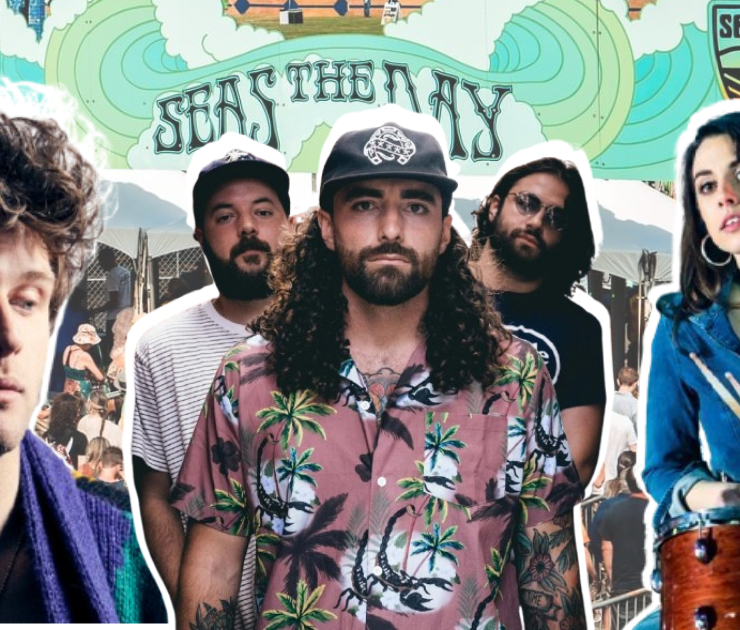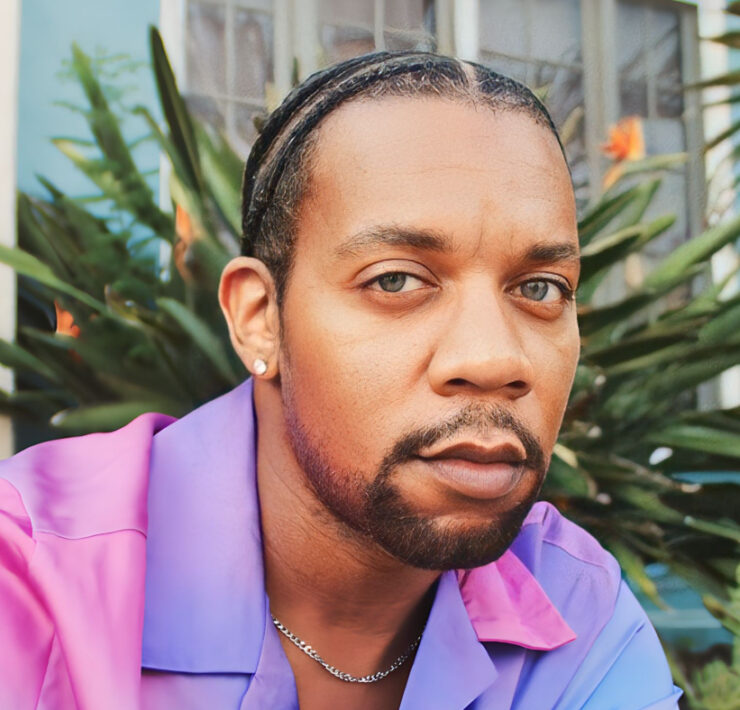Whether I'm popping in to an open mic night or…
In 2022, the Prudential Center grossed $85.2 million in revenue, reports Pollstar. As the arena prepares to welcome several big-name tours and media events, such as the 2023 Video Music Awards, this number is projected to skyrocket. Unfortunately, the city’s programming efforts aren’t as inclusive as it claims to be. Social justice advocate Dr. Kareem Willis and performer Elijahda Warner are working to revitalize Newark’s queer performing arts scene to its former glory.
With hundreds of anti-LGBTQIA+ as well as anti-drag laws passing throughout the country, safe spaces for queer people are important now more than ever. Over the years, Newark has had a few notable spaces, including Murphy’s Tavern, First Choice, Pacemaker, and the Globe, all served as that beacon. However, now only one stands, the Newark LGBTQ Community Center.
Through their programming initiative, Brick City Drag, Dr. Willis and Warner are building a community series with multiple purposes. As a drag performer (under the stage name Alisha Day), Warner is carving out a home for his fellow entertainer hailing from the Garden State. On the other hand, as an activist, Dr. Willis is channeling their community organizing skills to use the series for fundraising efforts. During the interview, we discussed the greater Newark’s arts scene, the history of drag, anti-drag legislation, the founding of Brick City Drag, and more. Read the full interview below.
To support Brick City Drag or for more information about their next event on Sunday, October 27, click here. To stay connected with Dr. Kareem Willis and Elijahda Warner’s upcoming drag performances, follow them across social media.
There’s a seemingly never-ending stigma that Newark will always be in New York City’s programming shadow. You both have done extensive programming work inside and outside of New York City. Can you tell me a bit about your thoughts on the debate?
Kareem: Sure, give flowers to New York. They’ve always been the standard by which we can measure ourselves. They do great things. There’s a reason people flocked to New York. But one that gets misconstrued or overlooked about the art scene in Newark is the fact that there is one, and it is dope, transformative, and all about creating community. Newark’s art scene fosters a sense of belonging while empowering the artists.
To the outside, ‘We’re living in New York’s shadow,’ which we are always fighting, but that drives a lot of what we do here. In Newark, you can catch a play and visit art galleries. There’s always a variety of things happening here that you can take advantage of outside of what happens at institutional establishments like NJPAC, Newark Symphony Hall, or Prudential Center. One of the best parts is that the young people are creating these spaces or curating these events.
Elijahda: I would like to push back to say that we’re not in New York City’s shadow. Yes, it may be huge because it’s more established. The few times I’ve been in the New York City scene, I’ve noticed that we may not have as big of a name, but I feel like our aesthetic or our niche is so much more different. New York has become so commercialized that our scene is more intimate and authentic. But from the drag perspective, we are creatively in New York City’s shadow because it’s so saturated.
Thanks to shows such as RuPaul’s Drag Race, The Boulet Brothers’ Dragula, HBO’s We’re Here, and other series, drag has become more widely admired by the cis-gendered heterosexual communities. Drag is now “mainstream” and a fixture in popular culture. However, there’s still a very set view of what drag performers are, what drag looks like, and what it feels like. Elijahda, could you speak to what drag is?
Elijahda: Drag is art — it’s performance art! Drag’s origins in the theater. Over time, it evolved, appearing in movies, film, television, fashion, and now social media. For me, drag is very much a passion. It’s a unique performance art from your own perspective. You are an entrepreneur, business manager, creative director, makeup artist, hair stylist, and costume designer. It takes a lot of skill sets to become a drag queen or team to help directly be successful. Anyone can do drag, and we’ve seen this historically. Cisgendered men haven’t only been in drag because, you know, women weren’t allowed in the theater. But also, we’ve seen cis-gendered women in drag. Bette Midler, Jamie Foxx, Tyler Perry, Dustin Hoffman, and the late Robin Williams have all done drag.
We’re currently in scary times as it relates to the public’s viewpoints on drag across the country. What has your experience been like in public when you’re in drag?
Elijahda: In the beginning, I was fearful. I used to live in Irvington, and I would take the bus to Newark Penn Station and then commute to the West Village in a full face and my hair wrapped or in a wig. I was very self-conscious. I was very defensive. For me, it was a way to protect myself. It was just that I had a lot of anxiety traveling because I did not know if someone was going to do something or try something because I had been assaulted verbally, sexually, and physically on public transit while going to gigs. Oftentimes people in the public confuse drag performers for trans people or trans people for drag performers.
And it is unfortunate that people groups are often subjected to harm because of pure ignorance. I would think that this conversation will be a lot easier because drag has such an omnipresence. What are your thoughts on the current political climate as it relates to drag?
Kareem: It goes beyond drag performers — it’s the entire queer community. But trans people and drag performers are in the spotlight. With increased visibility, we would hope that it does some good for the queer liberation movement, but it does have some harm. Some of those things Elijahda talked about, the anxiety of just being out in public or just being yourself is very real. People have a disdain for anything that deviates from heteronormativity. People who don’t lack knowledge also have the power and influence to distribute those messages. There are over several dozen pieces of legislation actively against trans folk and drag performers alone. Unintentionally, as a trans person or drag performer, your whole existence becomes political. You’re a part of something way bigger.
Elijahda: Drag has always been political. Even if you as an individual don’t want it to. Drag challenges the status quo. Whether doing hyper-feminine, hypermasculine, or something in the mind. In my opinion, these political actions are targeted to continue disenfranchising trans and queer people. Drag queens are being used up by politicians as pawns. The word ‘groomer’ is recklessly being thrown around as virtue signaling. While others are trying to use drag to pander. I understand that Drag Story Hours are helpful because they teach acceptance and tolerance as kids naturally gravitate to sparkly, shiny things. But my pushback is, why would you need drag queens to help teach children tolerance? Drag queens are the ones receiving these death threats. These drag queens are the ones that are being met with violence.
And then, in the end, drag performers are losing their livelihoods, and their freedom of speech is being infringed upon. Even staff who work in these spaces are losing jobs. You can’t do a queer event or a pride event in public anymore because of some of these laws. So that means Pride is canceled. That’s the height of money-making and opportunities for queer performers.
What should these performers keep in mind when they’re either taking these gigs? Attendees? And what should the organizers be doing to protect them?
Elijahda: Many black and queer folks have worked in spaces that are not safe, but we have rent, bills, and family to provide for. Unfortunately, we still have to be on the front line of the battle because we’re not going to stop doing what we love because people hate it. Protect yourself! Demand security and safe spaces from these corporations — creating spaces at these venues not only affirms you but also holds organizations accountable. We saw when the abortion laws were being repealed in Georgia, production companies shut down filming. Put your money where your mouth is. A lot of these small towns benefit from the business and tourism that comes from Pride.
So start saying, we’re not going to bring our money here to support these communities or that are trying to disenfranchise queer folks. We’re doing these performances and stunts but also putting ourselves at risk so you can look good and meet your quota and diversity inclusion metrics. Increase the pay rate. Demand that you be provided with an Uber or given extra pay for my coverage of traveling. Make sure there’s security at the door. Make sure there’s a point person to make sure that I’m transported to and from your destination. Make sure there are metal detectors. Make sure that people are being patted down upon entry.
Kareem: It’s time for us to really start figuring out what mobilization could look like. Thinking strategically and intentionally about how we begin to challenge that will begin to do the community some good. For corporations and people who want to engage in the art form, do better by doing your research. We need to start making the harms very real for these corporations. Corporations are run by people with their own limited knowledge and understanding. But when you’re dealing with Marcy or Jeanette in onboarding, then have that conversation right because that person might genuinely not know or claim to be oblivious. Ask them to advocate for you. You might risk losing a gig, but it’s necessary.
That leads us to the safe space you’re creating with Brick City Drag. Elijahda, you frequently work out of town, so you could have easily launched this event somewhere else. What made you all plant roots in Newark?
Elijahda: I got sick and tired of doing that. Knowing that there are venues here in spaces within Jersey, just Newark, I thought there had to be something already like it. But there wasn’t. When I go to New York City, I’m performing with people from New Jersey. So I was like, ‘We have the talent. We got the skills to create the opportunity in space.’ I mean, it sounds really, really simple. Knowing that there are so many artists here, especially queer folk, black, queer folk, in the entertainment industry, why can’t we use our talents here? Why can’t we keep it at home? So we wanted to create that space where we could go — building a drag scene in Newark and East Orange like there was 20 to 30 years ago.
Kareem: What’s beautiful about Brick City Drag is that we could have easily just done a simple drag show. But we wanted to use it as a vehicle for multiple purposes. We wanted to build community in ways that we weren’t really experiencing. We wanted to use our powers for good. which is what I always tell people, I’m just trying to use my powers for good. Because, at the time, I was building social capital and always wanted to do something with it. And I just didn’t want to just host a one-off event. I wanted events in and of themselves that could be used for something greater. Our queerness is always something that we’re taught to hide. And I just love being able to give other queer folks a platform to put it on full display, even when we’re doing it scared.
Whether I'm popping in to an open mic night or digital crate-digging for hours through my favorite digital streaming platform, finding indie artists is the name then telling their story is the game.







